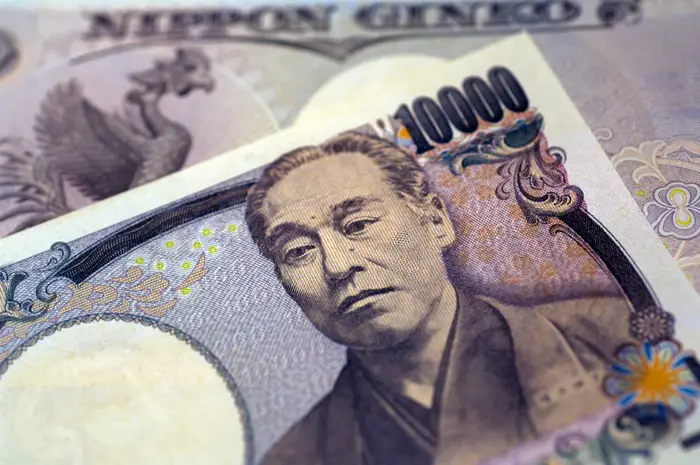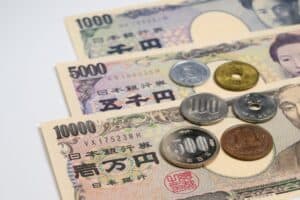
Challenges Faced by Japan’s Foreign Workforce due to Historically Low Yen
Japan’s historically low yen has had a significant impact on its foreign workforce, presenting a range of challenges for those employed in the country. The yen’s value has been declining for several years, reaching its lowest point in 2016. While a weak yen can benefit certain sectors of the economy, it poses unique difficulties for foreign workers. In this article, we will explore the challenges faced by Japan’s foreign workforce due to the historically low yen and discuss potential solutions to mitigate these issues.
1. Decreased Purchasing Power
One of the most significant challenges faced by foreign workers in Japan due to the low yen is decreased purchasing power. As the value of the yen decreases, the cost of living in Japan becomes relatively higher for those earning foreign currencies. This can lead to financial strain and difficulties in meeting basic needs.
For example, let’s consider a foreign worker who earns a fixed salary in their home currency. If the yen weakens, the cost of goods and services in Japan becomes more expensive for them. This can result in a lower standard of living and limited disposable income.
2. Inflationary Pressures
The historically low yen also contributes to inflationary pressures in Japan. When the yen weakens, the cost of imported goods increases, leading to higher prices for consumers. This can be particularly challenging for foreign workers who rely on imported products or services that become more expensive due to the weakened currency.
Furthermore, inflationary pressures can also impact housing costs. As the cost of construction materials and labor increases, so does the price of rent and property. Foreign workers may find it increasingly difficult to afford suitable housing, especially in major cities like Tokyo.

3. Wage Stagnation
Another challenge faced by Japan’s foreign workforce due to the historically low yen is wage stagnation. While the cost of living in Japan may be increasing, wages for foreign workers often remain stagnant or increase at a slower pace. This wage stagnation can make it difficult for foreign workers to keep up with rising expenses.
Additionally, some employers may take advantage of the weak yen to reduce labor costs. They may offer lower salaries to foreign workers or delay salary increases, citing the economic conditions as a reason. This can lead to job dissatisfaction and a lack of motivation among foreign workers.
4. Limited Career Advancement Opportunities
The historically low yen can also limit career advancement opportunities for foreign workers in Japan. As companies face economic challenges, they may cut back on hiring or freeze promotions. This can make it difficult for foreign workers to progress in their careers and achieve their professional goals.
Furthermore, the weak yen may discourage foreign companies from investing in Japan or expanding their operations. This can result in a limited number of job opportunities for foreign workers, making it harder for them to find new employment or switch industries.
5. Cultural and Language Barriers
Lastly, foreign workers in Japan face cultural and language barriers that can be exacerbated by the historically low yen. The cost of language classes or cultural integration programs may become less affordable due to the weakened currency. This can hinder foreign workers’ ability to fully integrate into Japanese society and develop strong professional networks.
https://www.youtube.com/watch?v=rcv6j5vVNEQ
Moreover, the weak yen may discourage some foreign workers from staying in Japan long-term. If their financial situation becomes increasingly challenging, they may choose to return to their home countries, where the cost of living is more favorable.
Conclusion for Historically Low Yen
The historically low yen presents a range of challenges for Japan’s foreign workforce. Decreased purchasing power, inflationary pressures, wage stagnation, limited career advancement opportunities, and cultural and language barriers all contribute to the difficulties faced by foreign workers in Japan. To address these challenges, it is crucial for employers and policymakers to consider measures such as adjusting wages to reflect the cost of living, providing support for language and cultural integration, and promoting career development opportunities for foreign workers. By addressing these issues, Japan can create a more inclusive and supportive environment for its foreign workforce.
What does it mean when the yen is historically low?
When the yen is historically low, it means that the value of the Japanese yen has decreased significantly relative to other currencies, making it weaker in comparison.
What factors contribute to a historically low yen?
Factors contributing to a historically yen may include economic conditions such as low interest rates, monetary policies implemented by the Bank of Japan, fluctuations in international trade, geopolitical events, and investor sentiment.
How does a historically low yen impact the Japanese economy?
A historically low yen can have both positive and negative impacts on the Japanese economy. It may boost exports by making Japanese goods more competitive in international markets but could also increase the cost of imported goods and lead to inflation.
What are the effects of a historically low yen on Japanese businesses?
Japanese businesses may benefit from a historically low yen by increasing their competitiveness in export markets and potentially boosting profits. However, they may also face challenges such as higher costs for imported materials and inflationary pressures.
How does a historically low yen affect international travelers to Japan?
International travelers to Japan may find that their foreign currency goes further when the yen is historically low, allowing them to enjoy lower prices on accommodations, dining, shopping, and other expenses.
Are there any risks associated with a historically low yen?
Risks associated with a historically low yen may include increased volatility in financial markets, uncertainty about future exchange rate movements, and potential economic imbalances.
How do investors respond to a historically low yen?
Investors may respond to a historically low yen by adjusting their investment portfolios to take advantage of potential opportunities or hedge against currency risk. They may also monitor economic indicators and central bank policies for signals about future exchange rate movements.
What are the implications of a historically low yen for Japan’s trade balance?
A historically low yen may improve Japan’s trade balance by making its exports more competitive in foreign markets and reducing the cost of servicing foreign debt. However, it could also increase the cost of imported goods and energy, potentially offsetting some of the benefits.
How does the government respond to a historically low yen?
The government may respond to a historically low yen by implementing monetary or fiscal policies aimed at stabilizing the currency, promoting economic growth, and addressing any adverse effects on the economy.
What are the long-term implications of a historically low yen?
The long-term implications of a historically low yen depend on various factors, including economic policies, global economic conditions, and geopolitical developments. It may impact Japan’s competitiveness, inflationary pressures, and overall economic growth trajectory over time.

[…] competitor ads. The Japan Fair Trade Commission (JFTC) imposed sanctions on Google, highlighting concerns over anti-competitive practices and the potential harm caused to fair competition in the digital […]